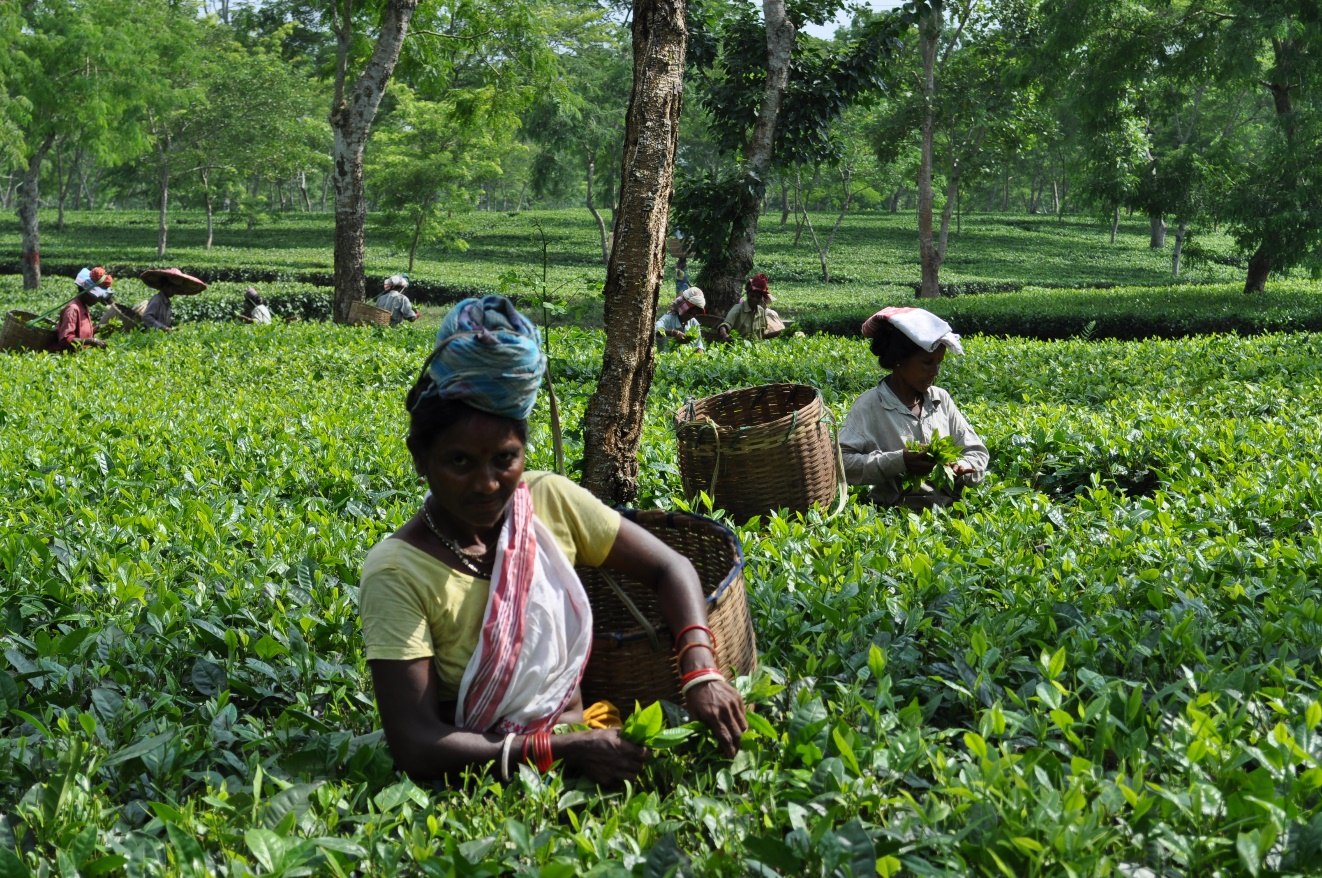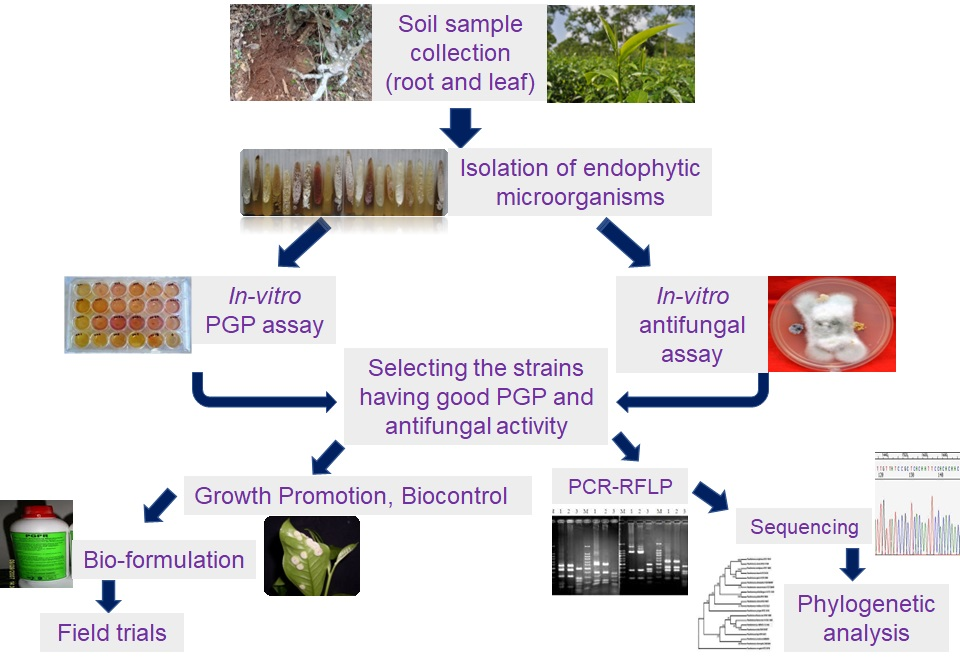
[ad_1]
Endophytic actinobacteria, that are well-known producers of bioactive compounds as metabolites, has proven potential as a viable various for development and illness administration of Tea plantations.
Tea, which has proven a decline in manufacturing because of the erratic weather conditions, specifically in Northeast India, can also be inclined to varied fungal pathogens and pests. This has resulted within the overuse of chemical pesticides and fungicides to extend tea manufacturing and yield, adversely affecting human and soil well being.

Dr. Debajit Thakur, Associate Professor, Life Sciences Division, and his analysis group on the Institute of Advanced Studies in Science and Technology (IASST), an autonomous institute of the Department of Science and Technology (DST), explored culturable endophytic microorganisms related to tea crops for growing bio formulations as an eco-friendly various to advertise plant development and management ailments with minimal use of chemical inputs in tea plantation.
They discovered that endophytic actinobacteria remoted from tea clones might act as potential biocontrol brokers. They might inhibit the expansion of a number of fungal pathogens, specifically, Exobasidium vexans, Poria hypobrunnea, Fusarium oxysporum, Nigrospora sphaerica, Phellinus lamaensis, and Rhizoctonia solani which can be identified to trigger main fungal ailments in tea crops.
In their examine revealed within the journal Frontiers in Plant Science, the researchers reported the molecular genetic range of 88 endophytic actinobacteria, the most important taxonomic group within the area of micro organism, related to business tea clones planted in Assam and Meghalaya Tea estates. They screened the endophytic actinobacterial isolates to guage their helpful position in the direction of the host tea plant and located that majority of them have the capability to boost plant development via phytostimulation, biofertilization, and biocontrol.
The group discovered that the micro organism produce phytohormone indole acetic acid, which governs cell division and stimulates vegetative development in crops, and 1-aminocyclopropane-1-carboxylate deaminase (ACCD) enzyme, which might alleviate plant stress in abiotic and biotic stress circumstances and improve plant development. Besides, actinobacteria assist in organic nitrogen fixation and phosphate solubilization, which boosts soil fertility, and the ammonia they produce helps in enhancing plant well being by suppressing the expansion of fungal pathogens.

In addition, these endophytic actinobacteria related to tea crops additionally produce extracellular enzymes chitinase, cellulase, amylase, protease, and pectinase, not directly selling plant development and serving to in host protection. Secretion of cellulase and pectinase by these endophytes aids within the penetration of those micro organism into plant tissue and helps set up a symbiotic relationship between them. The manufacturing of chitinase enzyme by the isolates helps within the degradation of fungal cell partitions and aids in safety in opposition to fungal phytopathogens, thereby contributing to the biocontrol of fungal ailments. In the nursery experiment, chosen Actinobacterial strains considerably enhanced the shoot and root biomass, shoot and root size, and leaf quantity in host tea crops.
The eco-friendly various with growth-promoting and antifungal traits might reduce using chemical inputs for development promotion and illness management in business tea plantations.
The Know-How package deal for the manufacturing of plant growth-promoting substances and bioactive metabolites by microbial bioformulation has been developed, and the liquid formulation is validated in business Tea Estates of Assam for the applying in opposition to main foliar tea fungal ailments. The product has been very efficient in controlling Fusarium Dieback, Black Rot (causal agent, Corticium sp.); Red Rust (causal agent, Cephaleuros sp. in each stem and leaf), and Mealy-Bud in business Tea Estates. The expertise for the manufacturing of bioactive metabolites by microbial strains has been transferred by signing of an Agreement between the Institute of Advanced Study in Science and Technology and Green Harvest (India) Bio-Tech, an organization primarily based in Guwahati, Assam.
For detailed data on this examine, please click on the below-mentioned hyperlink:
https://www.frontiersin.org/articles/10.3389/fpls.2022.989794/full
Contact element: Dr. Debajit Thakur, Associate Professor, Life Sciences Division, Mail ID: debajitthakur[at]iasst[dot]gov[dot]in
[adinserter block=”4″]
[ad_2]
Source link